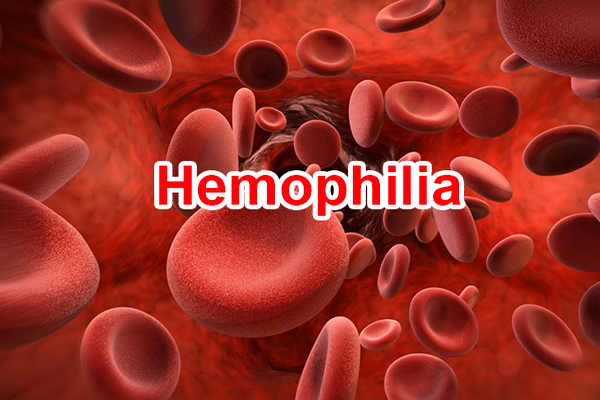Complications and Nursing Management of Hemophilia Disease
What is Hemophilia Disease?
Hemophilia is a rare disorder in which your blood doesn’t clot normally because it lacks sufficient blood- clotting proteins (clotting factors). Hemophilia is an inherited bleeding disorder due to deficiency of plasma coagulation factors. It is primarily found in males but transmitted by female carriers.

Nursing Management of Hemophilia Disease:
Nursing assessment should include details history of illness with family history and history of prolonged bleeding after any injury or surgery. Thorough physical examination to be done to assess the nursing diagnosis and to plan nursing interventions.
Nursing interventions of Hemophilia Disease:
1. Assessing the child at frequent interval and recording of findings related to the disease.
2. Preventing hypovolemia by control of bleeding with the following measures:
- Applying pressure and cold on the area for 10 to 15 minutes even after injection and venipuncture.
- Placing absorbable gelatin foam or fibrin foam on wound and applying fibrinolytic agent for oral bleeding.
- Avoiding suturing and cauterization during surgery.
- Immobilizing and elevating the affected part.
- Providing rest, comfort and quiet environment.
- Monitoring vital signs and signs of shock.
3. Administering drugs as prescribed with necessary precautions. Missing factors or blood should be given slowly to minimize transfusion reaction (2-3 ml/min). Packet should be checked for negative test of hepatitis ‘B’, HIV etc.
4. Preserving joint mobility by treating hemarthrosis with prescribed drugs, immobilization in a slight flexion position, applying cold and following other instructions of supportive care. Affected joint can be treated with plaster cast if necessary. Preventing weight bearing on the affected joint.
5. Providing protection against injury and bleeding.
6. Teaching the parent and family members about home care, safety measures, regular follow-up, continuation of school education, avoidance of sports injury and overweight: need for hospitalization, complications, etc.
7. Providing emotional support to cope with the problem and involving parents in routine care of the child.
Complications of Hemophilia Disease:
Hemophilia may cause numbers of complications. They include:
- Airway obstruction caused by bleeding into the neck and pharynx.
- Intracranial bleeding leading to neurological impairment.
- Intestinal obstruction due to GI bleeding.
- Compartment syndrome due to compression of nerves by bleeding into deep tissues.
- Degenerative joint disease, osteoporosis and muscle atrophy due to repeated hemorrhage.
- Chronic hepatitis and cirrhosis due to contaminated cryoprecipitate.
- HIV/AIDS due to transfusion related infections.
- Physical, psychological and social handicaps.
More questions related to this article:
- Define hemophilia.
- What is hemophilia?
- What do you mean by hemophilia?
- Write down the management protocol of hemophilia from nursing point of view.
- Describe the nursing management of hemophilia.
- State the complications of hemophilia.

Maria Khatun Mona is a Founder and Editor of Nursing Exercise Blog. She is a Nursing and Midwifery Expert. Currently she is working as a Registered Nurse at Evercare Hospital, Dhaka, Bangladesh. She has great passion in writing different articles on Nursing and Midwifery. Mail her at “maria.mona023@gmail.com”
